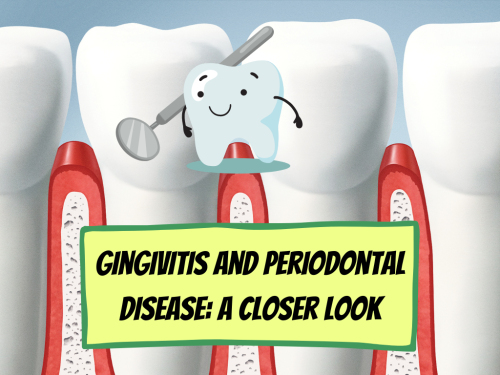Staying hydrated isn’t just good for your body – it’s a key player in maintaining...
Read More- 1-530-283-2811
- Gregory L Sawyer DDS
- Family Dentistry & Orthodontics
- 2034 E. Main St. Quincy CA 95971



Gum disease, also known by the name gingivitis or gum disease, can lead to tooth loss. Gingivitis is the most common form of gum disease in adults. Periodontal disease is also a very common condition. Both types of gum disease can be prevented by brushing your teeth regularly and removing as much plaque as you can. Gum disease is usually the result of plaque buildup.
The Negative Effects Of Tartar And Plaque
Gingivitis refers to inflammation of the tissues of your gums. The gums can become irritated and swollen if plaque and tartar buildup along the gum line. The gums can become very tender and puffy over time. You’ll notice that your gums are very tender and will bleed easily if you don’t use enough pressure to brush them. Gingivitis is a condition where you see blood while brushing your teeth. There shouldn’t be blood when you floss or brush your teeth.
Benefits Of Brushing And Flossing
There is no loss in bone structure during this stage of gingivitis. Gingivitis can be prevented by flossing and brushing your teeth a few times per day. Gingivitis can lead to periodontal disease if you don’t take action. Periodontal disease is usually caused by those who neglect to treat gingivitis and those who have poor oral hygiene habits.
What Periodontal Disease Is
Periodontal disease refers to a condition where the bone and surrounding structures become destroyed. This type of mouth disease is not curable. However, it can be stopped by visiting your dentist regularly and brushing your teeth at least once a day. Periodontal disease can be serious. You should try to stop it from getting worse.
Why Early Treatment Is So Important
The condition will only get worse if you don’t take action to stop it from progressing. In the beginning stages of the disease your gums will appear brightly red and very sore. Plaque buildup below the gum line is what causes this. If left untreated, plaque and tartar below the gum line will continue to eat away at the teeth.
There Are Many Reasons To Get Regular Checkups
Periodontal disease can be diagnosed even if plaque is not visible or easily detected. Periodontal disease can be diagnosed by having your dentist check you on a regular basis. To determine if you have periodontal disease, your dentist will perform tests on your teeth and gums. Your dentist will be able to tell you how to stop periodontal disease from progressing and how to prevent it from getting worse.
How And Why You Could Lose Your Teeth
Gingivitis and periodontal disease are not normally painful. Both tend to progress slowly. Even though you might not realize you have one or the other at first, symptoms and signs will begin to appear in later stages. You’ll usually lose the tooth once the latter stages are complete.
You should visit the dentist regularly for regular cleanings and checkups to ensure your health and gum safety. Your dentist can help you to treat early stages of gum disease if you notice it. Don’t wait to get treatment. Gum disease in its advanced stages can cause irreversible damage to your gums and teeth. There is little you can do.
Dr. Sawyer can help you schedule your next appointment if you have concerns about gingivitis and periodontal disease.

Learning about your dental health is so important. Set an appointment today to see if I can help you! Call: 530-283-2811
Office Hours:
Tuesday, Wednesday, Thursday, & Friday
11 a.m.-7 p.m.
Evenings & Saturday by Appointment
Address:
2034 E Main St
Quincy, CA 95971
In Business Since 1984
Staying hydrated isn’t just good for your body – it’s a key player in maintaining...
Read MoreAre you looking to enhance your smile with professional teeth whitening options? Professional whitening, performed...
Read MoreAre you considering getting dental braces but unsure of what to expect during the application...
Read MoreWelcome to the world of pediatric dentistry, where we focus on ensuring lifelong oral health...
Read More